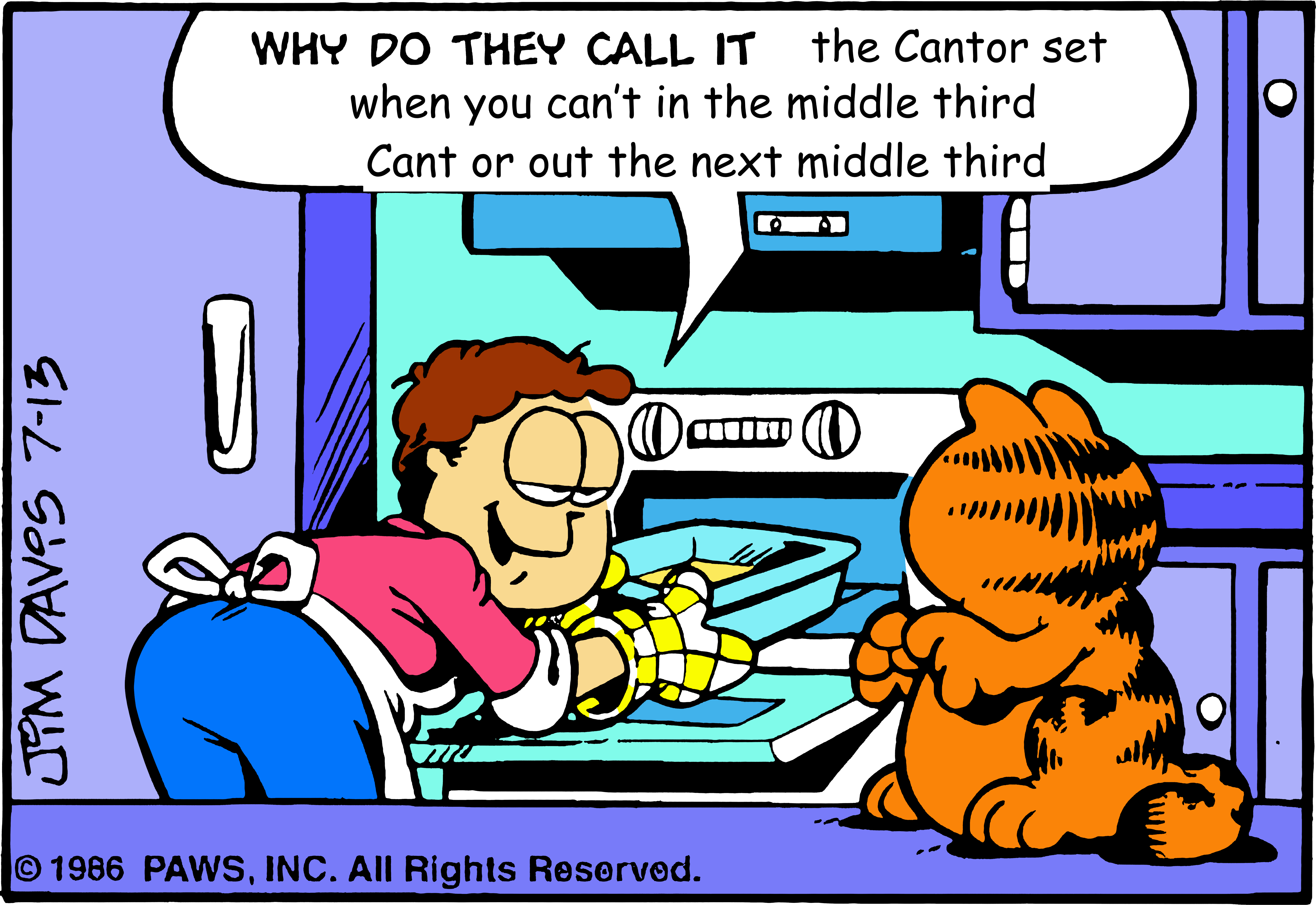∞-Oreo
In this talk I will introduce the ∞-Oreo, probably changing the food industry forever. We will explore other ∞-foods and conclude with a conjecture.
The graduate pizza seminar in the math department at the University of Pennsylvania.
In this talk I will introduce the ∞-Oreo, probably changing the food industry forever. We will explore other ∞-foods and conclude with a conjecture.
We will look at the mathematical aspects of the game of SET (where the goal is to find certain triplets called SETs) and the affine cap problem over integers mod 3. We will then see how counting how often no SETs appear relates to hyperplane arrangements, posets, Mobius inversion, etale cohomology and finally representation stability.

The Euler characteristic, as an alternating count of the number of cells, satisfies a finite additivity condition on nice spaces. This suggests that the Euler characteristic can perhaps be viewed as a finitely additive signed measure! Following this observation, Viro and Schapira independently proposed an integration theory with respect to the Euler characteristic, now known as the Euler calculus. In this talk, I will introduce the setting of o-minimal structures (which can be thought of as "measurable sets" for Euler integrations) and the theory of Euler calculus on them. I will then discuss some interesting properties and applications of Euler calculus. If time permits, I will also discuss an extension of this theory to Lefschetz numbers from the Lefschetz trace formula. The theories presented here have promising applications in the applied sciences, although we probably will not discuss that.
We’ll look at how math can be used to detect and even prevent unfair districting in elections. I’ll introduce the basic ideas behind measuring “compactness” of districts, how randomness and geometry come into play, and what makes drawing fair maps such a surprisingly difficult mathematical problem.
We will be discussing Achievement Sets which are the set containing every subsum of a given series. We will see my method for building achievement sets and explore a handful of examples to see what different types of sets can be built.
In this talk, we will prove the following intuitive result: If we can tile arbitrarily large disks of the plane with finitely many bounded tiles, then we can tile the whole plane. We will explore what happens if we remove some hypotheses, and we will discuss its relation with aperiodic tilings of the plane (where the number of tiles needed can range from 20426 to 1).
In this talk, we will explore how to embed graphs in surfaces, focusing on the connection between graph topology and surface genus. My favorite invariant from algebraic topology will appear (spoiler: it's the Euler characteristic) and we will draw some fun pictures.
Many of us are familiar with the Banach-Tarski paradox, but do you know of nonlinear solutions to the equation f(x+y)=f(x)+f(y), or of tricks where it seems as though we can infer an uncountably infinite amount of things from only a countably infinite amount of information? We will discuss some silly tricks you can do with the axiom of choice, and, time permitting, some of its alternatives, and the silly things you can do with them.
This talk is about a very playful sequence, originally studied by John Conway, whose first terms are displayed in the title. We'll define the sequence, prove some of its basic properties, and then discuss Conway's "cosmological theorem," which determines the limiting behavior of the sequence. A surprising role is played by a particular endomorphism of the free monoid on 92 generators.